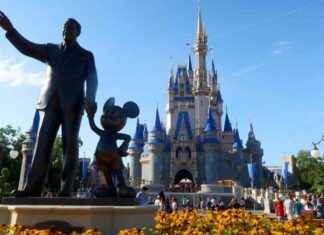The rich, as we well know, are different from you and me. They’ve got more money – plus a vast army of bankers, lawyers and tax experts to make sure they keep as much of it as possible out of the clutches of governments.
The Panama Papers, a massive leak of documents from the Panama-based law firm Mossack Fonseca, gave a detailed look at tax avoidance and evasion around the world. It showed how the global elite stash vast wealth away in tax havens, manipulating laws to avoid paying hundreds of billions of dollars in tax each year.
When the Panama Papers were revealed last year as part of a project coordinated by the International Consortium of Investigative Journalists, including the Star, the focus was on tax-friendly jurisdictions like Switzerland, Luxembourg and various sunny isles in the Caribbean.
Now it turns out we don’t need to look nearly so far. In a series of articles based on more documents from the 11.5 million in the Panama Papers trove, the Star’s Robert Cribb and Marco Chown Oved have shown that Canada, of all places, “is quietly emerging as a popular tax haven for the global elite.”
Those in the know apparently call it “snow washing” – taking advantage of Canada’s stellar reputation to make dodgy financial transactions look legitimate. Central to this practice is the fact that the way companies are registered in Canada involves a degree of secrecy more commonly associated with tax havens like Panama and the Bahamas.
Simply put, the true owners of companies registered in Canada don’t have to be identified in corporate registries. They can pay a lawyer or other stand-in a fee to appear on public filings.
Further, report Cribb and Oved, foreign investors are most interested in Canadian corporate structures known as limited partnerships, or LPs. An LP itself doesn’t have to file tax returns. Only the partners do, unless they aren’t resident in Canada. If that’s the case, no taxes have to be filed in Canada. In principle, partners must pay tax in their home country – but they may well be officially resident in a tax haven with a zero tax rate.
Mark Morris, a consultant who specializes in international tax agreements, told the Star that the system makes Canada “like the ultimate tax haven entity in the world.”
And in a 2010 internal memo unearthed as part of the Panama Papers, officials at Mossack Fonseca wrote: “Canada is a good place to create tax planning structures to minimize taxes like interest, dividends, capital gains, retirement income and rental income.”
The potential for abuse is enormous. For one thing, allowing movement of assets under a cloak of anonymity opens the door to outright illegality like money laundering.
Short of that, it facilitates the workings of the global tax avoidance industry. The London-based Tax Justice Network has estimated that an astonishing $31 trillion may be hidden away around the world, depriving governments of as much as $280 billion in tax revenue.
The bottom line is that those wealthy enough and crafty enough to take advantage of the system aren’t paying their fair share for basic government services. And that leaves the rest of us carrying a heavier burden. It’s flat-out wrong.
Canada has taken steps towards cracking down on tax dodgers who park assets offshore and evade what they should be paying. The Harper government started it in 2013 when it gave the Canada Revenue Agency new funding and directed it to step up “compliance” on overseas assets. The Trudeau government followed up by boosting the CRA’s funding by $444 million over five years to hire more auditors.
Those efforts have recovered significant concealed tax revenue, but Canada still lags behind other countries when it comes to stemming the flow of hidden money. Experts say Britain is setting the example; last June it required corporate registrations to include the names of real company owners (so-called “persons with significant control”) rather than just front men or women.
The records are listed in an online database that can be viewed by anyone, bringing much more transparency to the system. At least 16 other countries have pledged to set up similar registries, and it’s high time for Canada to follow suit and make “snow washing” a lot more difficult.
One complication is that registration of companies here is divided between Ottawa and the provinces and there is no central registry. But that’s no excuse to tolerate wrong-doing. The Trudeau government should move more aggressively to make sure Canada doesn’t become a favoured spot for offshore money to avoid paying its proper share.
The Toronto Star and thestar.com, each property of Toronto Star Newspapers Limited, One Yonge Street, 4th Floor, Toronto, ON, M5E 1E6. You can unsubscribe at any time. Please contact us or see our privacy policy for more information.
Our editors found this article on this site using Google and regenerated it for our readers.





